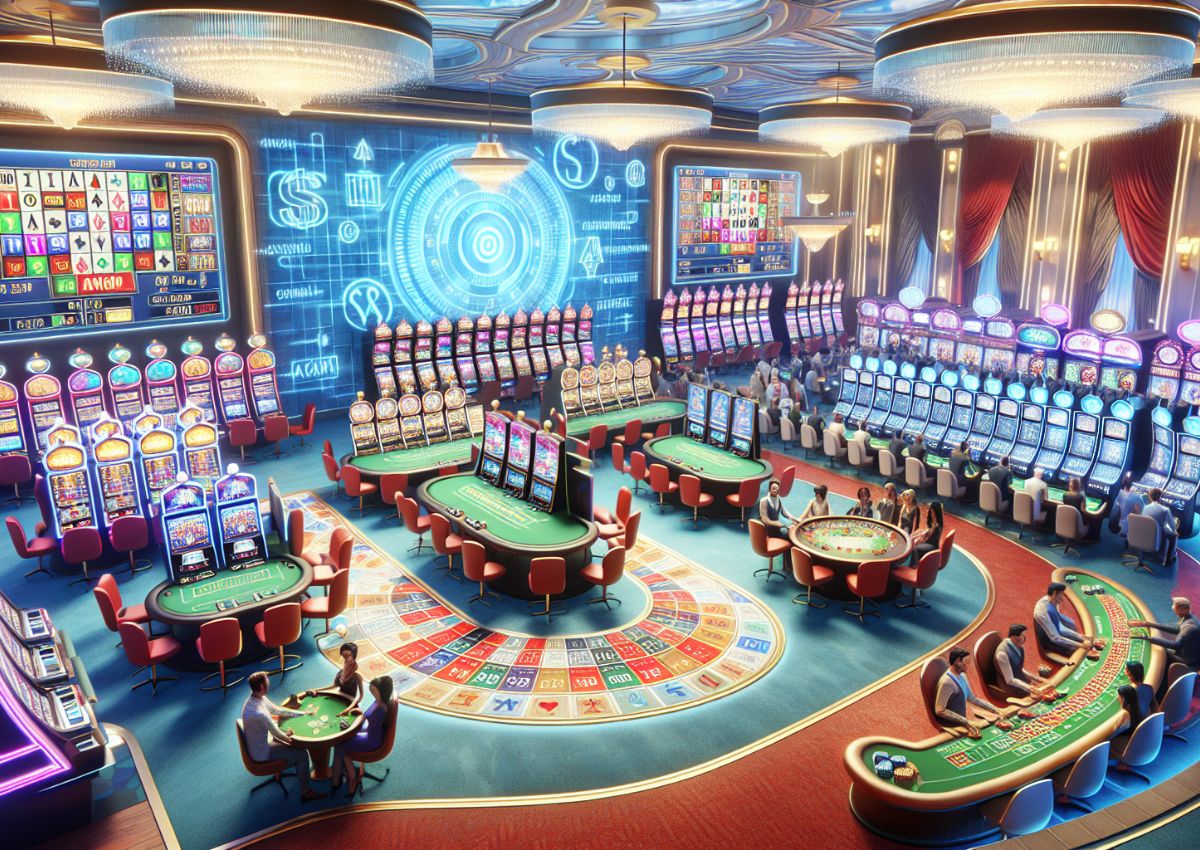Exploring Tabletop Games: Beyond Randomness

When we think of casino activities, the initial pictures that often come to mind are those of spinning wheel wheels, card chips clattering on felt surfaces, and cubes flying across a gaming area. While many view these activities as simple pastimes fueled by chance, a more profound exploration reveals a captivating blend of tactics, skill, and community engagement that raises them well beyond basic chance. Whether you are a seasoned player or a curious newcomer, understanding the nuances of these activities can greatly enhance your enjoyment and understanding.
Gambling activities have evolved over centuries, with various cultures contributing to their rich backgrounds and variations. From the intricate tactics of blackjack to the deception methods in poker, players engage in a battle of wits as much as a gamble on odds. This exciting interplay between luck and skill creates a thrilling atmosphere that draws countless people to gambling establishments worldwide. As we explore the realm of table games, we will uncover the methods that can shift the odds in your advantage and the community elements that make these activities a favored choice for leisure and interaction.
The Approach of Table Games
Casino gaming frequently combine a mix of ability and chance, making them fascinating for players who enjoy a challenge. Every title has its own set of guidelines and tactics that can affect the results. For instance, in games like 21, players are required to use strategies like card counting and understanding the probabilities to make informed decisions. This skill set can greatly improve their winning potential, differentiating experienced participants from novices who may depend entirely on luck.
Conversely, titles such as the roulette may appear to be purely based on chance, but strategic thinking can also come into the equation. Participants can choose between different betting tactics, such as the Martingale strategy, where they increase the wagers after losses. This method can establish a more methodical way to the game. Grasping the probabilities of specific wagers can also help participants make better decisions on the roulette table, showcasing that even in games of chance, strategy can enhance the experience.
Additionally, the game of poker stands out as a game that strongly focuses on strategy. Unlike most gaming titles, poker merges ability, psychology, and chance. Players must not only concentrate on the cards they are given but also take into account their rivals’ behavior and wagering patterns. Mastering principles like position, the odds of the pot, and reading bluffing is crucial for success. This depth of strategy in the game of poker often leads to a more immersive encounter for players, as the choices and abilities significantly affect the game’s results.
Grasping Chance and Ratios
In the realm of casino activities, likelihood and odds play a crucial role in deciding a player’s potential results. Every game has its own set of guidelines that define how the probability of winning or losing is calculated. For case, in matches like 21, players have a chance to influence their odds through planning, whereas in games like roulette, the outcomes are purely dictated by luck. Understanding how these chances are measured can greatly impact how a gambler approaches the game.
Ratios are typically shown in two forms: fractional and decimal. Fractional ratios indicate the ratio of the sum won to the amount bet, whereas numeric odds show the total return for a winning bet, including the initial bet. For instance, if a game has odds of 5 to 1, this means that for every one unit bet, a player could win five dollars if they win. Knowing how to understand these ratios allows players to assess their possible winnings and formulate more wise choices during gameplay.
Players should also be aware of the house edge, which is the casino’s inherent benefit over the players. Each match has a different advantage, and grasping this concept is crucial for handling one’s hopes and bankroll. Games with a lower advantage, such as 21 and baccarat, typically offer superior odds for gamblers compared to games like slot machines and keno. By understanding the connection between probability, ratios, and the house edge, players can improve their gaming experience and plan more effectively.
The Exciting Aspect of Table Gaming
Table games at casinos are often seen as a hub of community engagement, bringing participants together in a shared experience that goes far past the mere act of playing games. The atmosphere at a poker table can be vibrant, with gamblers engaging not only with the game itself but also with each other. Joy, cheers, and, occasionally, playful teasing create connections that improve the overall experience of the gaming experience. This communal aspect can turn a alone endeavor into a dynamic gathering, making table games particularly enticing.
One of the intriguing elements of gaming at tables is the way it fosters friendship among players. Whether it’s teaming up to defeat the dealer at a dice table or sharing stories between hands in a poker game, the environment encourages communication. Players often share tips or tactics, creating a sense of community that boosts the fun. This interpersonal atmosphere can make new gamblers feel included and less daunted by the competitive nature of gaming. As the game continues, friendships may form, leading to a sense of connection that keeps participants coming back to the table.
Moreover, the social aspect of table gaming extends beyond just the participants. Dealers play a vital role in facilitating interaction and maintaining the flow of the game. Their ability to engage gamblers with warm dialogue and their expertise in running the table can create an inviting atmosphere. oke179 This connection between participants and dealers adds another layer of enjoyment, where gamblers feel connected not only to each other but also to the staff. Such interactions are often what make the experience unforgettable, as players leave with stories to tell and connections made, reinforcing the notion that table games are truly about more than just chance.